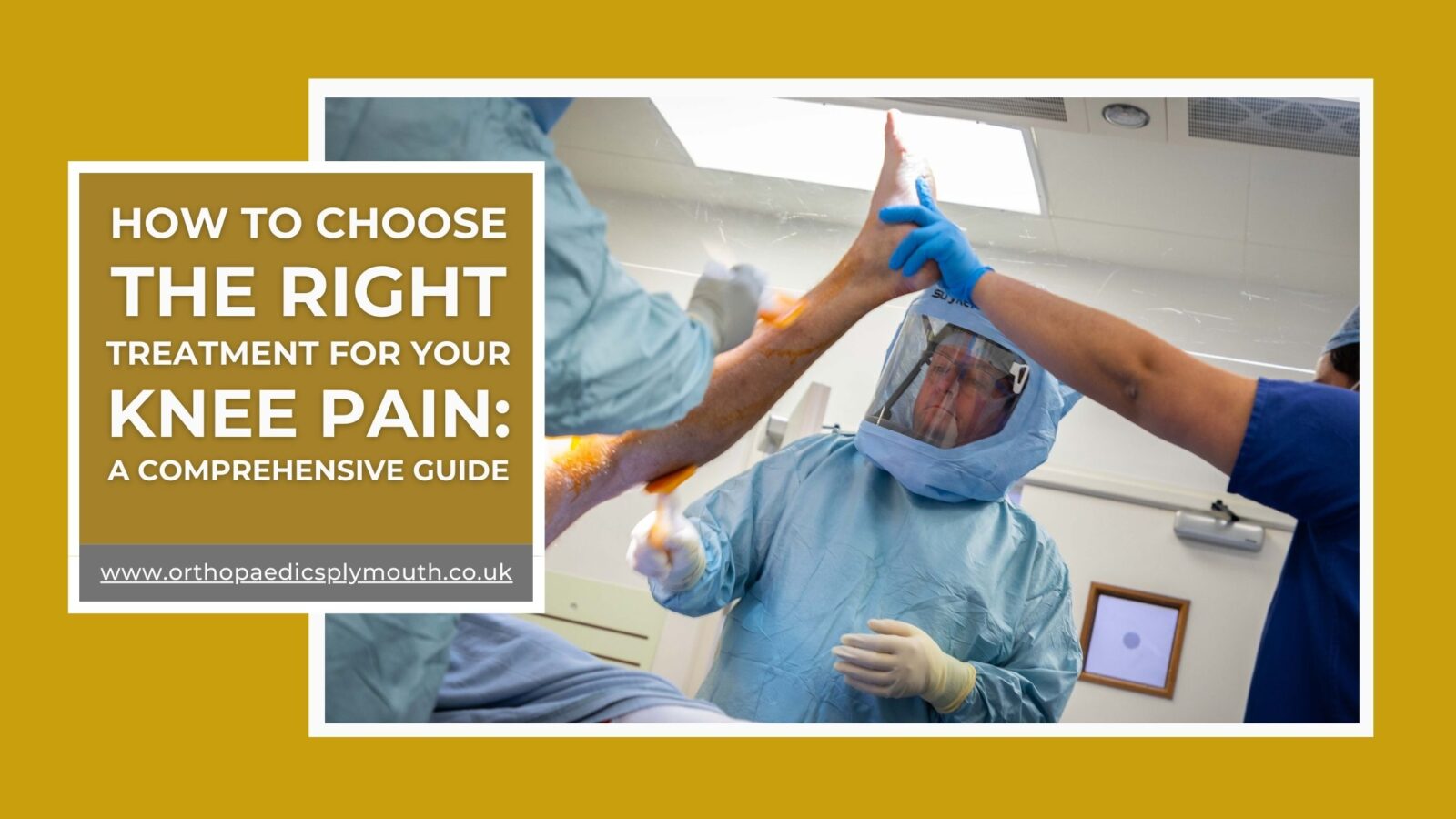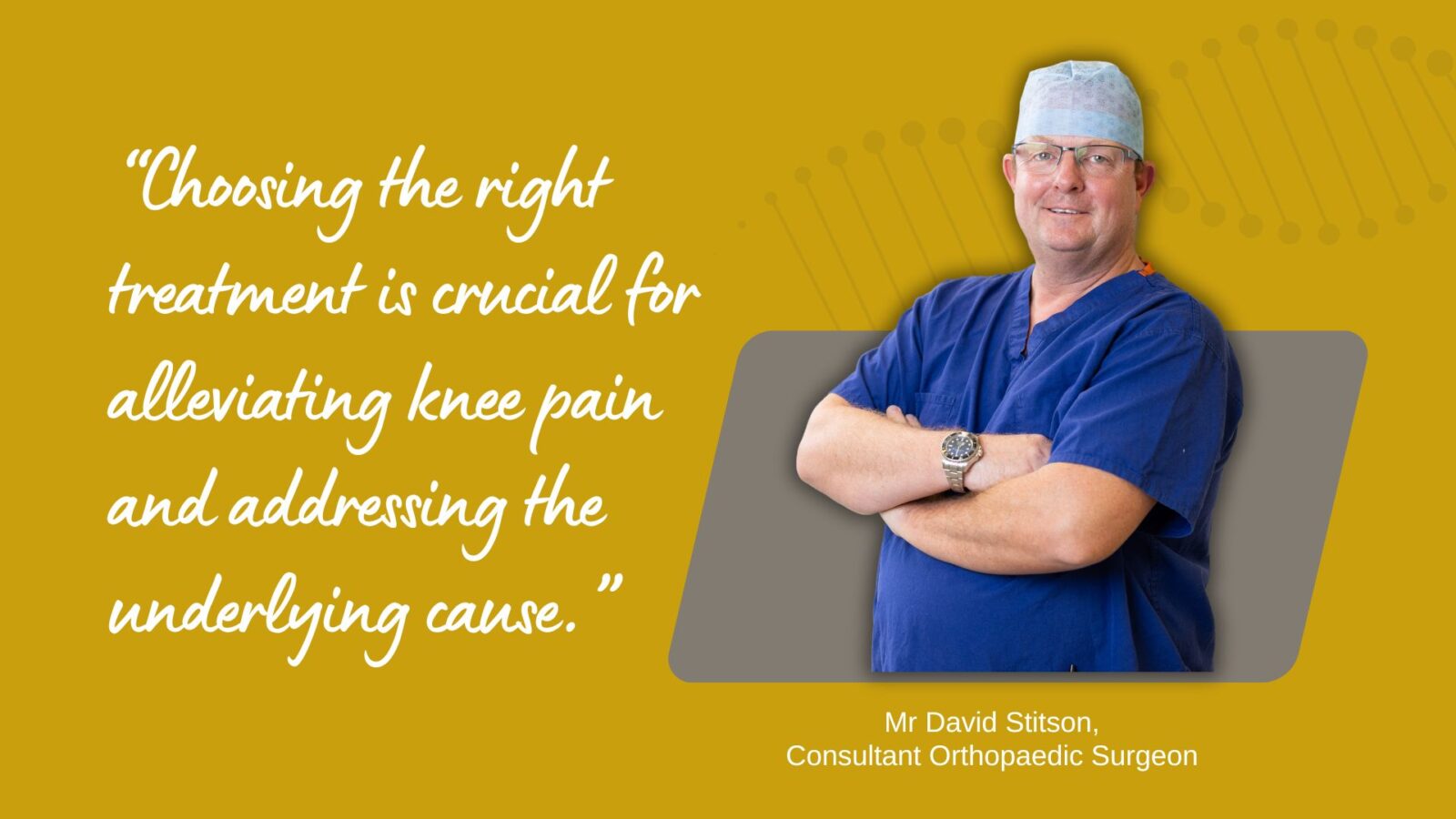A Comprehensive Guide on How to Choose the Right Treatment for Your Knee Pain
Knee pain is a common issue that can significantly impact your quality of life, limiting your mobility and ability to perform everyday activities. Choosing the right treatment for your knee pain is crucial for alleviating pain and addressing the underlying cause. We guide you through various treatment options, discussing their pros and cons to help you make an informed decision.
Contents
ToggleRest and Activity Modification
Pros:
- Non-invasive: No medical intervention is required.
- Cost-effective: No expenses related to treatments or medications.
- Allows natural healing: Gives your body time to repair itself.
Cons:
- Possible slow recovery: Healing might take a long time, especially for more severe injuries.
- Risk of stiffness: Prolonged inactivity can lead to joint stiffness and muscle atrophy.
Physiotherapy
Pros:
- Improves mobility and strength: Tailored exercises can strengthen muscles around the knee.
- Non-invasive: No surgery or medications needed.
- Personalised treatment: Exercises are customised to your specific condition and needs.
Cons:
- Time-consuming: Requires regular sessions over a period of time.
- Effort-dependent: Effectiveness depends on the patient’s commitment and effort.
- May cause initial discomfort: Some exercises might be uncomfortable initially.
Medications
Over-the-Counter Pain Relievers (e.g. Paracetamol, Ibuprofen)
Pros:
- Easy access: Available without a prescription.
- Quick relief: Effective for reducing pain and inflammation.
Cons:
- Temporary solution: Does not address the underlying cause.
- Potential side effects: Long-term use can lead to gastrointestinal issues, liver damage, or kidney problems.
Prescription Medications
Pros:
- Stronger pain relief: More effective for severe pain.
- Targeted treatments: Specific medications can address particular conditions (e.g., inflammation).
Cons:
- Side effects: Risk of dependency, gastrointestinal issues, and other adverse effects.
- Requires prescription: Need to visit a doctor.
Injections
Corticosteroid Injections
Pros:
- Reduces inflammation quickly: Provides fast relief from pain and swelling.
- Minimally invasive: Simple outpatient procedure.
Cons:
- Temporary relief: Effects can wear off after a few months.
- Potential side effects: Risk of infection, cartilage damage, and weakening of tendons.
Hyaluronic Acid Injections
Pros:
- Lubricates the joint: Improves knee movement and reduces pain.
- Longer-lasting: Effects can last for several months.
Cons:
- Variable effectiveness: Not all patients experience significant relief.
- Cost: Can be expensive and might not be covered by insurance.
Alternative Therapies
Acupuncture
Pros:
- Natural treatment: No drugs or chemicals involved.
- Personalised care: Treatment is tailored to individual needs.
Cons:
- Variable effectiveness: This may not work for everyone.
- Requires multiple sessions: Relief may take several treatments.
Supplements (e.g., Glucosamine, Chondroitin)
Pros:
- Non-invasive: Simple to incorporate into daily routine.
- Natural: Fewer side effects compared to medications.
Cons:
- Limited scientific evidence: Effectiveness is still debated.
- Long-term use required: Benefits might take time to manifest.
Surgical Options
Arthroscopy
Pros:
- Minimally invasive: Small incisions and quicker recovery.
- Effective for certain conditions: Good for meniscal tears, removing loose cartilage or loose bodies and ligament reconstruction.
Cons:
- Not suitable for all issues: Limited to specific types of knee problems.
- Risk of complications: Infection, blood clots, and anaesthesia risks.
Partial or Total Knee Replacement
Pros:
- Long-term solution for degenerative knee conditions:
- Can significantly reduce or eliminate pain.
- Improves quality of life:
- Enhances mobility and function.
Cons:
- Major surgery: Involves significant recovery time and rehabilitation.
- Risk of complications: Infection, blood clots and implant issues.
- Longevity of implants: May need revision surgery in the future.
Choosing The Right Treatment For Your Knee Pain
When choosing the right treatment for your knee pain, consider the following factors:
Severity of pain:
Mild pain might be managed with rest and over-the-counter medications, while severe pain may require more intensive treatments.
Underlying cause:
Identifying the root cause of your knee pain is crucial. Consult with Mr Stitson for an accurate and honest diagnosis.
Personal preferences:
Consider your lifestyle, activity level, and personal preferences when choosing a treatment option.
Medical advice:
Always consult with Mr Stitson to discuss your symptoms and treatment options. He will happily guide you towards the most appropriate and effective solution for you.
Remember, knee pain treatment is not a one-size-fits-all solution. It is essential to weigh the pros and cons of each option and work with Mr Stitson to develop a tailored plan that meets your individual needs and goals.
About Knee Surgery
Knee replacement surgery replaces the worn out, painful and stiff knee joint with a new prosthetic joint. This procedure which may be a partial or a total replacement is normally performed under spinal anaesthesia and is usually followed by a night or two in the hospital. Day-case knee replacement surgery may be an appropriate option for you.

About Mr Stitson
David Stitson is a Plymouth-based Consultant Trauma and Orthopaedic Surgeon. Trained both in the UK and internationally, he has worked in medicine for more than 20 years for the NHS, for the Royal Air Force and in private practice. Mr Stitson operates privately at the Nuffield Health Hospital, Plymouth.

The Nuffield Plymouth CQC Rating
The Nuffield Hospital has a history that spans over half a century and has built a reputation for high standards of care, professionalism and expertise in delivering health services. They aim for continuous quality improvement in everything they do.
Active Quality and Governance programmes are in place at the Nuffield Hospital Plymouth. As part of this, the hospital is inspected by independent healthcare regulators to ensure it meets the fundamental standards of quality and safety as determined by the regulating body (CQC).
In the most recent inspection, Plymouth Nuffield Hospital was rated as ‘Good’ overall, however, the surgical element of the inspection was rated as ‘Outstanding’. The hospital was referred to as:
“Outstanding in effective and caring, and
Good in safe, responsive and well-led.”





